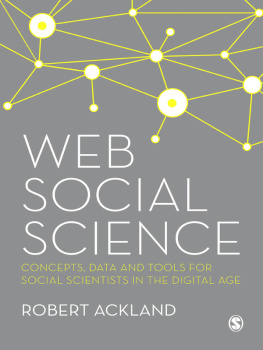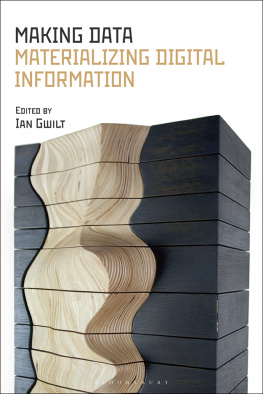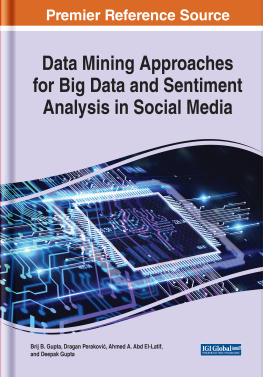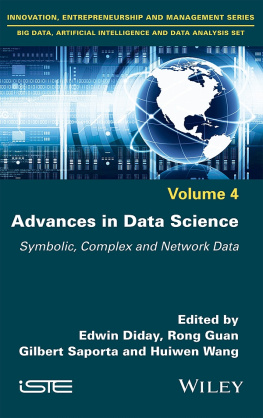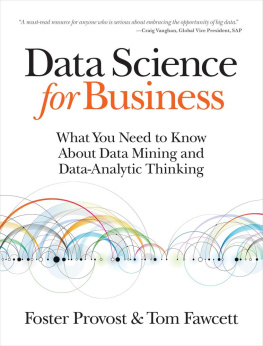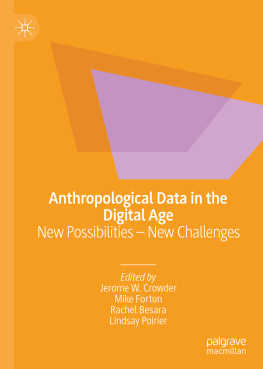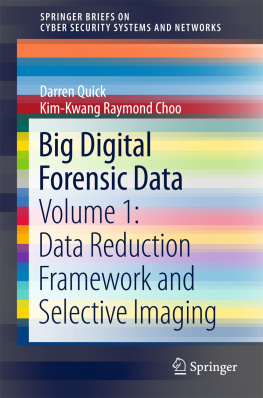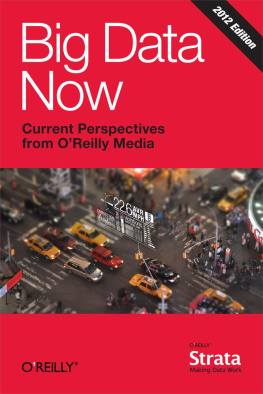
As pattern-seeking creatures, we look out to the objective world to make sense of our environment. In the age of datafication, the received wisdom is that the process has been reversed: corporations look into the subjective world of peoples data patterns in order to surveil and anticipate. This much is true, but as this pattern-breaking collection shows, much more happens besides. From the aesthetic to the temporal and from the cultural to the biopolitical, there is a fast-paced evolutionary struggle taking place for the perpetuation of the aeonic patterns of life against the growingly powerful machine-based intelligence of computation. Big DataA New Medium?? is the most important and encompassing analysis yet on the struggle for the soul of human creativity, diversity and autonomy.
Robert Hassan, University of Melbourne, Australia
This is a breath-taking and kaleidoscopic series of reflections on one of the most important phenomena of our age. It tells the compelling story of its subjects quest to anticipate and harness the individual and collective unconscious and is by turns surprising, complex, thought provoking, dizzying and mind-blowing just like Big Data itself.
Steve Dixon, President of LASALLE College of the Arts, Singapore
As the control of data surpasses the regulation of populations, new modes of government emerge: as well as stripping the earth of its resources we are also stripping our lives of the data they produce. At the same time, new forms of mutant expression are emerging that offer alternative modes of life because, as this volume makes strikingly evident, patterns are always more than they seem. Infinite processes sit buried within finite algorithms. Figuring out the relationship between data mining and its various forms of expression is an urgent task, one that the contributors to this volume take on with a critical intent that steers them away from platitudes and toward inventive insights for our age of control.
Iain MacKenzie, University of Kent, UK
This multidisciplinary volume is perfectly timed to help us consider our increasing immersion in data and its insidious integration with our current experience. Lushetich and the writers she collects in this volume help us rethink our relationship with data in a new way, focusing on its potential as a medium by which to reconsider the phenomena of our 21st century culture and how it affects our fundamental sense of being in the world.
Kevin LaGrandeur, New York Institute of Technology, USA
This mind-opening book cultivates an aesthetic appreciation for, even empathy with, the creative capacities of informational patterning. Certainly these authors critique the crude deployment of big data for profit and power. But more strikingly, they value seemingly nonhuman forms of perception and thought that liberate the human to surf within populations of patterned being.
Laura Marks, Simon Fraser University, Vancouver, Canada
This timely and lively collection offers a broadening of the understanding of big data, drawing on the arts, humanities and social sciences to put big data in a bigger picture.
Matthew Fuller, Goldsmiths, University of London, UK
Big DataA New Medium?
Drawing on a range of methods from across science and technology studies, digital humanities and digital arts, this book presents a comprehensive view of the big data phenomenon.
Big data architectures are increasingly transforming political questions into technical management by determining classificatory systems in the social, educational, and healthcare realms. Data, and their multiple arborisations, have become new epistemic landscapes. They have also become new existential terrains. The fundamental question is: can big data be seen as a new medium in the way photography or film were when they first appeared? No new medium is ever truly new. It is always remediation of older media. What is new is the mediums re-articulation of the difference between here and there, before and after, yours and mine, knowable and unknowable, possible and impossible.
This transdisciplinary volume, incorporating cultural and media theory, art, philosophy, history, and political philosophy is a key resource for readers interested in digital humanities, cultural, and media studies.
Natasha Lushetich is Professor of Contemporary Art & Theory at the University of Dundee. Her research is interdisciplinary and focuses on intermedia, biopolitics and performativity, the status of sensory experience in cultural knowledge, hegemony, and complexity.
Routledge Studies in Science, Technology and Society
Future Courses of Human Societies
Critical Reflections from the Natural and Social Sciences
Edited by Klber Ghimire
Science, Africa and Europe
Processing Information and Creating Knowledge
Edited by Patrick Harries, Martin Lengwiler and Nigel Penn
The Sociology of Structural Disaster
Beyond Fukushima
Miwao Matsumoto
The Cultural Authority of Science
Comparing across Europe, Asia, Africa and the Americas
Edited by Martin W. Bauer, Petra Pansegrau and Rajesh Shukla
Blockchain and Web 3.0
Social, Economic, and Technological Challenges
Edited by Massimo Ragnedda and Giuseppe Destefanis
Understanding Digital Events
Bergson, Whitehead, and the Experience of the Digital
Edited by David Kreps
Big DataA New Medium?
Edited by Natasha Lushetich
The Policies and Politics of Interdisciplinary Research
Nanomedicine in France and in the United States
Sverine Louvel
For the full list of books in the series: www.routledge.com/Routledge-Studies-in-Science-Technology-and-Society/book-series/SE0054
Big DataA New Medium?
Edited by Natasha Lushetich
First published 2021
by Routledge
2 Park Square, Milton Park, Abingdon, Oxon OX14 4RN
and by Routledge
52 Vanderbilt Avenue, New York, NY 10017
Routledge is an imprint of the Taylor & Francis Group, an informa business
2021 selection and editorial matter, Natasha Lushetich; individual chapters, the contributors
The right of Natasha Lushetich to be identified as the author of the editorial material, and of the authors for their individual chapters, has been asserted in accordance with sections 77 and 78 of the Copyright, Designs and Patents Act 1988.
All rights reserved. No part of this book may be reprinted or reproduced or utilised in any form or by any electronic, mechanical, or other means, now known or hereafter invented, including photocopying and recording, or in any information storage or retrieval system, without permission in writing from the publishers.
Trademark notice: Product or corporate names may be trademarks or registered trademarks, and are used only for identification and explanation without intent to infringe.


